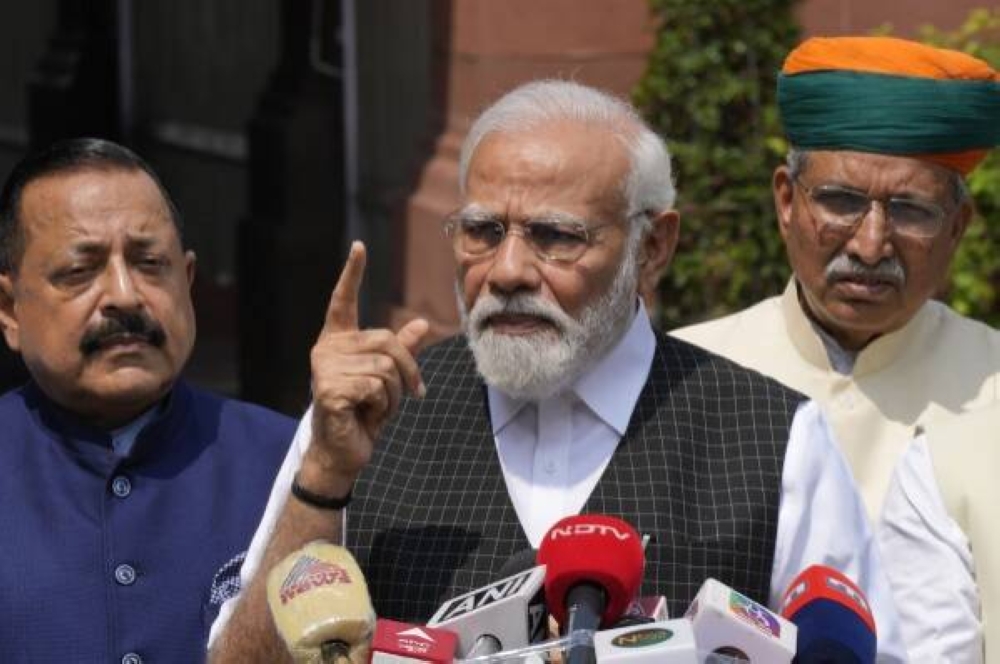Indian Prime Minister Narendra Modi said Tuesday that his government was working to end ethnic clashes in the country's remote northeast that have killed more than 150 people since May.
Political opponents have condemned Modi for failing to halt violence in the state of Manipur, while rights groups say his Hindu-nationalist party has fanned the flames of the conflict.
But speaking from New Delhi's imposing Red Fort for his annual Independence Day address, Modi said the conflict had abated and the relative peace in recent days "must continue".
"This will pave the way for a resolution -- it can only be found through peace," he said.
"All Indians are with the people in Manipur and the state and central governments are working for peace."
At least 152 people have been killed in Manipur since armed clashes broke out between the predominantly Hindu Meitei majority and the mainly Christian Kuki community.
The state has fractured along ethnic lines, with rival militias setting up blockades to keep out members of the opposing community.
Tens of thousands of additional soldiers have been rushed from elsewhere to patrol towns and highways, and a curfew and internet shutdown remain in force across Manipur.
Human Rights Watch has accused state authorities in Manipur, which is governed by Modi's party, of facilitating the conflict with "divisive policies that promote Hindu majoritarianism".
Modi easily defeated a no-confidence motion last week that had been called to condemn his government's conduct over the violence.
Rahul Gandhi, Modi's chief political opponent, accused the premier of being "set on burning the whole country" by failing to bring the conflict under control.
- Eye to election -
A speech at the Red Fort to mark India's independence from Britain has been an annual tradition since the country's first prime minister, Jawaharlal Nehru, took office.
Tuesday was Modi's last address from the centuries-old monument in the heart of Delhi before general elections next year, where he will seek a third successive term in office.
Modi remains popular and is widely expected to win the vote, but will face an invigorated coalition of disparate opposition parties campaigning on cost of living issues.
India's economy overtook that of former colonial power Britain last year, and Modi told the thousands of students, soldiers and foreign dignitaries in his audience that the country would become the world's third-largest economy if he was returned to power.
He also announced new policies ahead of the poll, including a $2 billion training package for workers and an expansion of subsidised pharmaceuticals for low-income earners.

